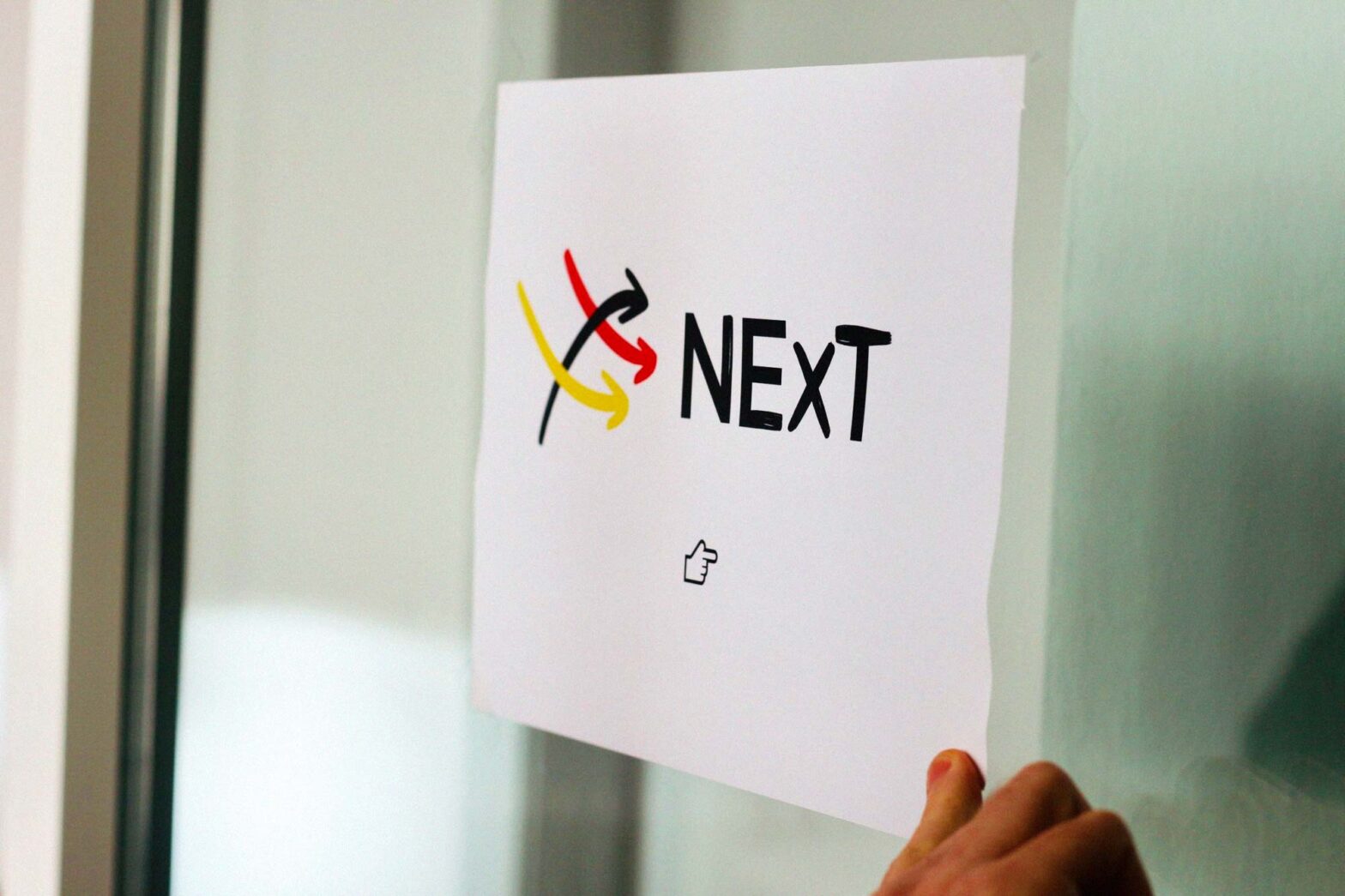This week, I did various things – including recruitment interviews and preparing the German edition of the ‘Introduction to Service Design’ training – but half of the week was going to/being in/travelling from Boppard. Right at the beautiful river Rhine with a castle on apparently every second hill, the Federal Academy for the Public Administration operates Haus Boppard, a late 15th-century monastery, as an education centre for public servants.
NExT, the German public sector community of practice network, ran its autumn conference there. Curious to understand how the communities are organised, what they do and who is involved, I joined when being asked. As it’s a closed community, you need to be asked to join.
Seeing community work in the German public sector up close
The autumn conference offered 2×1/2 days packed with presentations from the various communities of practices. Attendees heard from them about cloud, project management, robotic process automation, digital ethics, innovation management, chatbots and others. Also, working groups, initiated from within the communities of practice, shared their work on cloud technology, digital projects, architecture management, and digital learning journeys. Some additional inputs from external experts discussed new ways of working. New for public servants at least – as they included collaborative and open ways of working.
The conference was a meeting for members to get an overview of the many NExT activities and vote for the people on its board, incl. the chairperson, vice and treasurer – as NExT currently has the status of an association.
Over the 2 days, there was plenty of time and space for exchange and networking, including a long evening. I experienced it as an informal, trustful space allowing frank and open conversations without Germany’s usual hierarchy and the public service’s fixation on titles and pay grades.
Unfortunately, some presentations and conversations were less mature or outdated than anticipated, like “Is moving to the cloud really what we should be doing?” or “How can we adopt project management frameworks like Prince2?”. But the gathered group might already reflect the relatively progressive German government minds.
I was surprised to learn how many government and public sector organisations are represented and involved in NExT: over 550 organisations and 2,500 people – from caseworkers to state secretaries. Giving the impression NExT makes on its website, I was irritated that the people present were older and more male than I had anticipated. Also, almost all senior positions are currently held by middle-aged white men. Women mostly have assisting roles. There seems to be much work to do.
It was clear people enjoy being part of the community, have a sense of belonging and hold a cross-silo and pan-organisational exchange. Participants of the conference came from all parts of the public sector – from ministries to municipalities, which apart from some conference, I had not seen too often.
For me, a few conversations stood out. One Chief Digital Officer told me about the accessibility work done with the Munich-based charity Stiftung Pfennigparade (Literally: Penny Parade Trust), the growing need for inclusive testing within the public sector and steadily rising demand.
With colleagues from FITKO, a central unit for ‘Federated IT cooperation’, I talked about holistic standards and how the service standard should play a more prominent role. As they were also on the sounding board for the service standard, I was curious to hear their view. While they had been underwhelmed by the engagement from the governing department, they are interested in supporting the service standard in the future.
With people from BWconsulting, the internal consultancy of the Bundeswehr (literally: Federated forces, which includes the German armed forces), I discussed the challenges of being on the inside but not really. They shared how the perception of them being part of the public sector or outside consultants continues to swing. We spoke about how they are being perceived and therefore treated differently every few years, depending on stakeholders’ current views.
From the various conversations, the perception of the Digital Service is very positive. And more parties are interested in working closely with us and see us more engaged in the network and community activities.
Even though there weren’t any designers and not many design-minded people attending, some people expressed their desire for better ways of sharing resources and outputs like design systems and web components.
In inclusion, I believe we should become more engaged in some of the established NExT formats, like bar camps and regular virtual sessions. They seem to be an effective way to learn more about the German public sector while also changing progressive public sector workers’ views and moving the conversation towards user-centred, iterative ways of doing things.
We should engage and share our work and learnings in some of their communities, like mobile apps or the cloud. Various areas overlap with what we already do, and they are looking for exciting content. We have high-quality content from other presentations, probably ready to go. It would increase awareness of Digital Service, build more advocates and also advance public sector maturity in Germany.
At future in-person events, we should also spread our artefacts like publications, posters and stickers as they could be inconspicuous ways to shift mindsets in organisations and support their transformation.
Engaging further in NExT activities can help the German public sector progress, which is directly contributing to our goal #3. NExT’s unique cross-cutting setup can help us in real terms in our ongoing project work and lead to a good return on invested time.
Also this week: our Head of Product delivered a superb talk on day 1 of the virtual Civic Design conference. Following her presentation discussions with international folks on the event’s Slack server went on for at least 30 mins. It shows our little unit already has some valuable things to share with the international community, too.
What’s next
Next week, recruitment and training pre continues. We are also planning to share some work we couldn’t discuss publicly. So I’m looking forward to seeing that changed.

